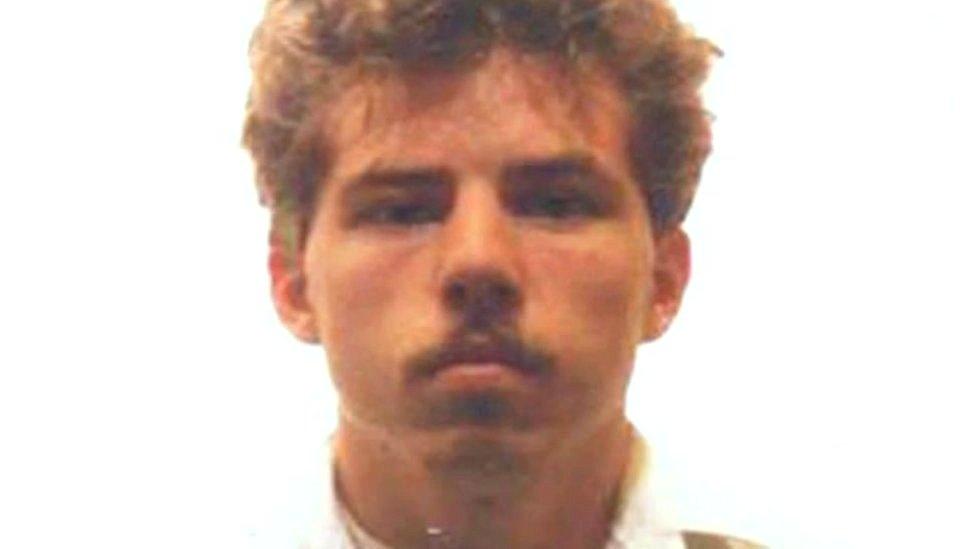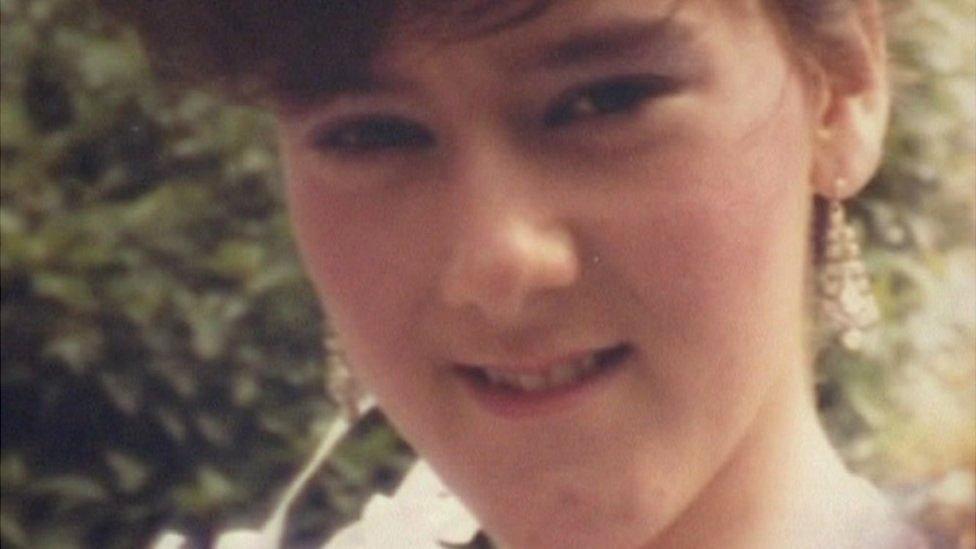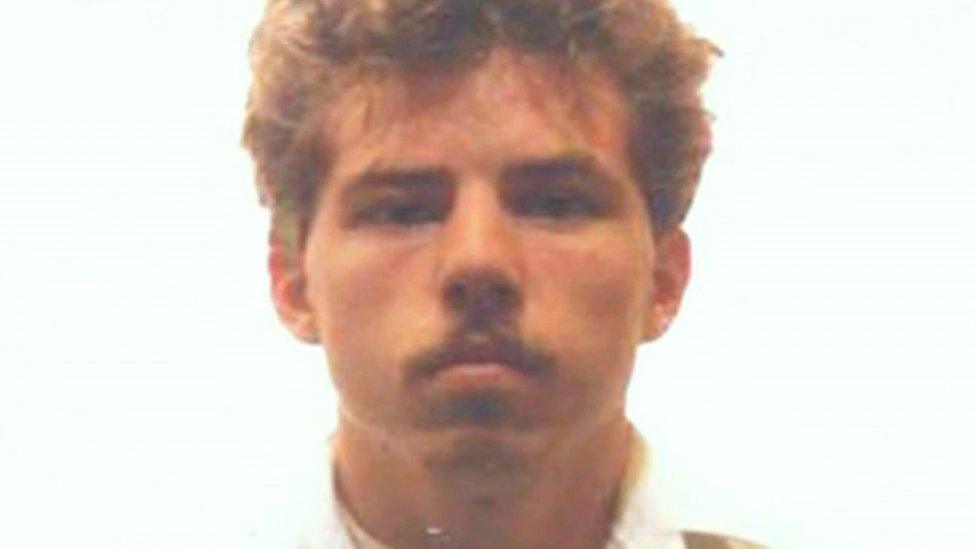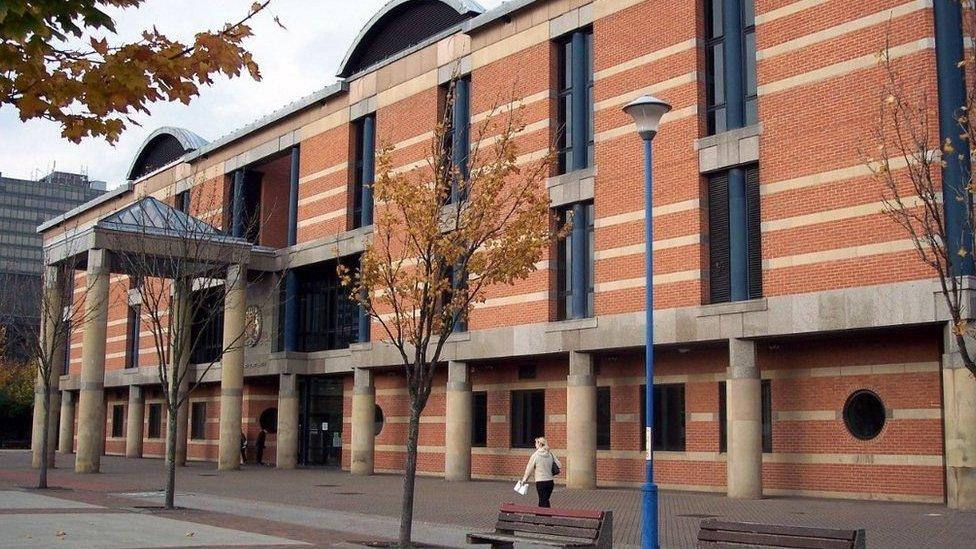Parole board approves William Dunlop's open prison move
- Published

Billy Dunlop was jailed for murder in 2006 after a change in the double jeopardy law
A murderer jailed after a change in the "double jeopardy" law could move to an open prison, the parole board has said.
Billy Dunlop, 59, was cleared after juries twice failed to find him guilty of murdering Julie Hogg in 1989. There was no result at Dunlop's first trial and he was formally acquitted after a second trial in which the jury could not reach a verdict. He was later jailed for life in 2006, external after he confessed his guilt to a prison officer while serving time for assault.
He was the first person to be retried for murder after a change in the law fought for by Ms Hogg's mother, external.
The former labourer has served a minimum term of 17 years.
Jurors twice failed to reach a verdict against Dunlop over the killing of his former partner, who was 22, in Billingham, Teesside.
The pizza delivery girl was initially reported missing, but her body was found months later behind a bath panel by her mother Ann Ming.
In 1991 Dunlop was formally acquitted but he later made his confession in prison while incarcerated for assault.

Julie Hogg was found by her mother hidden beneath her own bath
However, the law of "double jeopardy" said a defendant, once cleared, could not be tried for the same offence again.
Ms Ming successfully pushed for the law to be changed (which happened in 2005) and Dunlop was jailed for life.
He had to serve at least 17 years before being eligible for parole which, when factoring in time spent on remand, expired in September 2021.
In its conclusion, the parole board said Dunlop was not ready for release and he had not been seeking that.
But he was suitable for being moved to an open prison, which he had requested.
The panel said there were a number of "risk factors" at the time of Dunlop's offending, including the willingness to use "extreme" and "sexual" violence, drug and alcohol misuse, a "problematic attitude" towards women and that he "felt entitled to sex".
But they said he had completed "intensive therapeutic and offending behaviour work" and had "shown a significant shift in his understanding of his own behaviour and the impact on other people".
A move to an open prison would have to be approved by the Secretary of State for Justice, the parole board added.
Correction 6 October 2025: This article originally stated that Billy Dunlop was acquitted twice. We have amended the article to make clear that there was no result in the first trial and that he was acquitted after a second trial in which the jury couldn’t reach a verdict.

Follow BBC North East & Cumbria on Twitter, external, Facebook, external and Instagram, external. Send your story ideas to northeastandcumbria@bbc.co.uk, external.
Related topics
- Published18 July 2018

- Published12 July 2017

- Published10 July 2017

- Published6 July 2017
